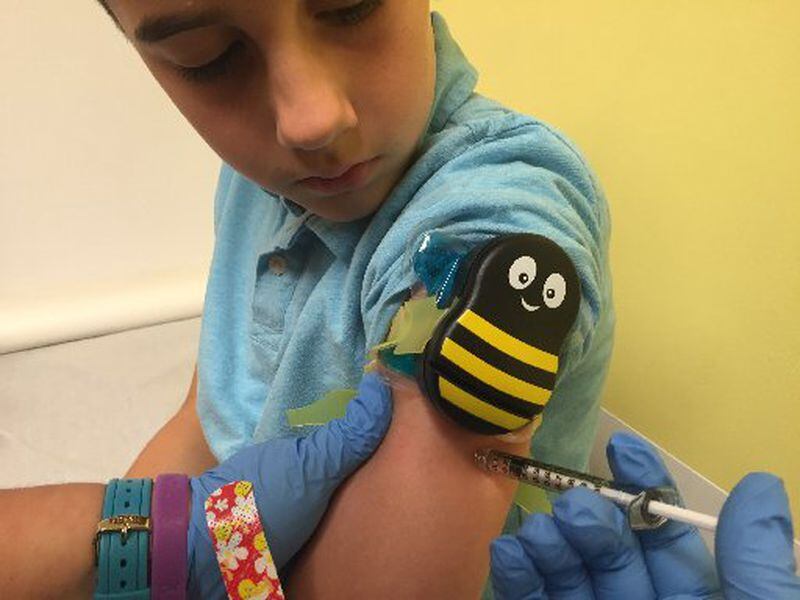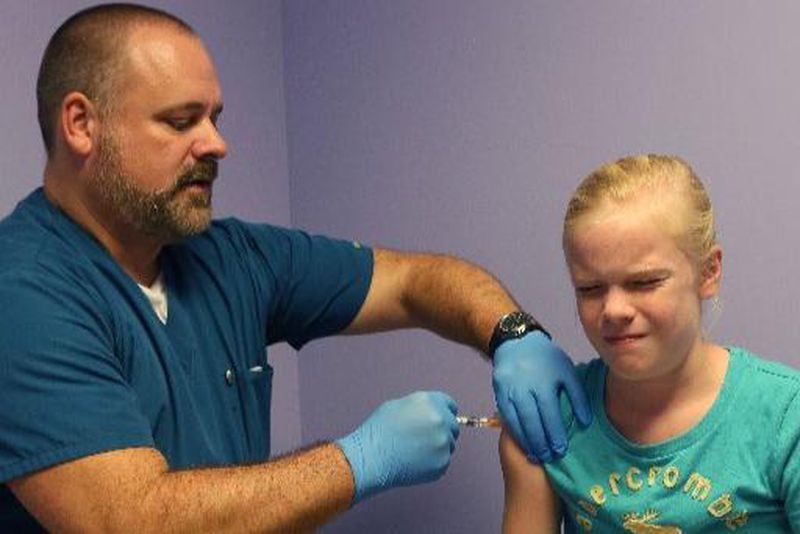This year’s flu season may be a real headache, in part because the vaccine contained in flu shots is much less effective against the most severe form of influenza — a strain known as H3N2, which has been dominant so far this season.
Health care experts in Australia, which suffers through its flu season from June through August, found that flu shots were only 10-percent effective in preventing H3N2 influenza there. It’s unclear if the vaccine in the U.S. will have similar difficulty in stopping the virus.
But it’s already clear that H3N2 will put it to the test.
The CDC issued a health advisory Wednesday urging doctors to treat at-risk patients with flu-like symptoms with antiviral medications quickly.
RELATED: What you need to know about this year's flu activity.
“Antiviral treatment should be started as soon as possible after illness onset and should not be delayed even for a few hours to wait for the results of testing,” the advisory says.
There have been 7,000 confirmed flu cases in the U.S. as of early December — double the number of cases during the same period last year. About 78 percent of influenza cases in the U.S. this year have been the H3N2 strain, according to Irena Kenneley, a board member of the Association for Professionals in Infection Control and Epidemiology.
And Georgia is tracking close to that percentage.
Peak flu activity in the U.S. is usually December to February. But the flu season started early this year and H3N2 has been the predominant strain, according to Cherie Drenzek, state epidemiologist for the Georgia Department of Health.
“One of the things we are very concerned about is that H3N2 is more severe in individuals who are susceptible: the elderly, the very young, the immune compromised, pregnant women,” Drenzek said. “What we’ve seen so far in Georgia … in hospital emergency departments the vast majority are little kids … (and) flu-associated hospitalizations are people over age 50.”
Brendan Flannery, an epidemiologist with the Centers for Disease Control in Atlanta who also works as an investigator for the U.S. Flu Vaccine Effectiveness Network, said two other influenza strains are also in circulation this year.
“The H3N2 virus typically is more severe, especially for the older population and young children,” Flannery said. “So we’re worried about that. If it’s a H3N2 season, we’re worried there will be lots of hospitalizations.”
Vaccination rates in Georgia last year were just over 41 percent — sixth lowest in the nation, according to the CDC’s website. Only about 38 percent of the U.S. population had received flu shots by November, according to the CDC website.
Kenneley said the flu needs to be taken seriously — it can lead to severe respiratory tract infections and is spread easily.
The CDC reported earlier this month that between 291,000 and 646,000 people worldwide die from influenza-0rienated illnesses each year.
“The influenza virus is among the most likely to cause significant epidemics in humans,” Kenneley said. “…And can lead to potentially serious complications such as pneumonia, bronchitis, sinus and ear infections.”
Flannery said that it’s important to get the annual vaccination, regardless of its overall rate of effectiveness.
“It does provide some protection,” Flannery said. “We see lower rates of flu in those that are vaccinated. Especially those who are at the highest risk, vaccination is a really important prevention strategy to avoid hospitalizations and death.”
The Associated Press contributed to this report.
About the Author








